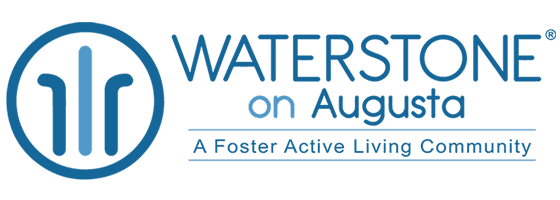If your loved one has been diagnosed with Alzheimer’s disease, you may be experiencing quite a bit of uncertainty. After all, an Alzheimer’s diagnosis raises a lot of questions related to your loved one’s health, finances, and life expectancy. Fortunately, there are several things you can do to reduce your own fear and ensure your loved one’s comfort. One example is taking the time to understand the stages of Alzheimer’s. Alzheimer’s typically progresses slowly as your loved one experiences the three stages: mild, moderate, and severe, or late stage Alzheimer’s. Understanding the progression of your loved one’s disease will help you know what to expect so you can plan ahead and customize their care. So, what are the stages of Alzheimer’s?
What Are the Stages of Alzheimer’s?
Mild Alzheimer’s
Most Alzheimer’s diagnoses take place during the mild stage of an individual’s disease. Your loved one may still function independently during the early stage of Alzheimer’s – driving, working, and socializing like normal. However, they may begin experiencing troubling memory lapses, forgetting words, the location of objects, or recent events. Although the early stages of Alzheimer’s are relatively innocuous, your loved one’s symptoms can still put them in harm’s way – for example, if they forget the rules of the road while driving. For that reason, it’s important to know the signs and act accordingly. There are several key symptoms to look out for during this stage:
- Trouble coming up with the right word in a conversation
- Trouble remembering names
- Challenges or awkwardness in social settings
- Losing or misplacing valuable objects
Moderate Alzheimer’s
Moderate Alzheimer’s involves more pronounced symptoms that often last for many years. During this stage, your loved one may experience difficulty performing daily tasks – personal hygiene activities, paying bills, or cooking meals, to name a few. At this point, you may see significant personality changes from your loved one. Individuals in the moderate stage will show several noticeable symptoms:
- Forgetting their personal history, like their telephone number or the name of their high school
- Confusion about where they are
- Personality changes, including moodiness, delusions, or compulsive behavior like tissue shredding
- More volatile temper
- Trouble controlling bladder and bowels
- Changes in sleep patterns like restlessness
Severe Alzheimer’s
The final stage of Alzheimer’s disease is characterized by severe dementia symptoms. Your loved one may struggle to communicate, only using certain words or phrases. They may also experience significant personality changes and an inability to complete daily tasks. At this point, they will likely require round-the-clock care from a professional. There are several things you may notice during this stage:
- Requiring round-the-clock assistance to complete personal care tasks
- Losing awareness of their surroundings
- Experiencing changes in physical abilities like walking, sitting, and swallowing
- Vulnerability to infections
_____
Caring for a loved one with Alzheimer’s disease is never easy. However, rest assured that you don’t have to go it alone: There are many resources available for individuals with Alzheimer’s and their families. Start by finding an assisted living facility that specializes in memory care and can provide a safe, comfortable place for your loved one as they go through the stages of Alzheimer’s. A memory care facility will help you enjoy peace of mind while keeping your loved one in a welcoming, secure environment.
If you’re still asking yourself, “What are the stages of Alzheimer’s?,” reach out to Waterstone on Augusta. Located in the heart of downtown Greenville, South Carolina, Waterstone on Augusta is a premier assisted living and memory care community. We offer a welcoming environment and an enriching lifestyle for our seniors. Plus, we provide support services for family members and engage residents through social events, activities, and games. Schedule a tour online or give us a call at 864-605-7236.

